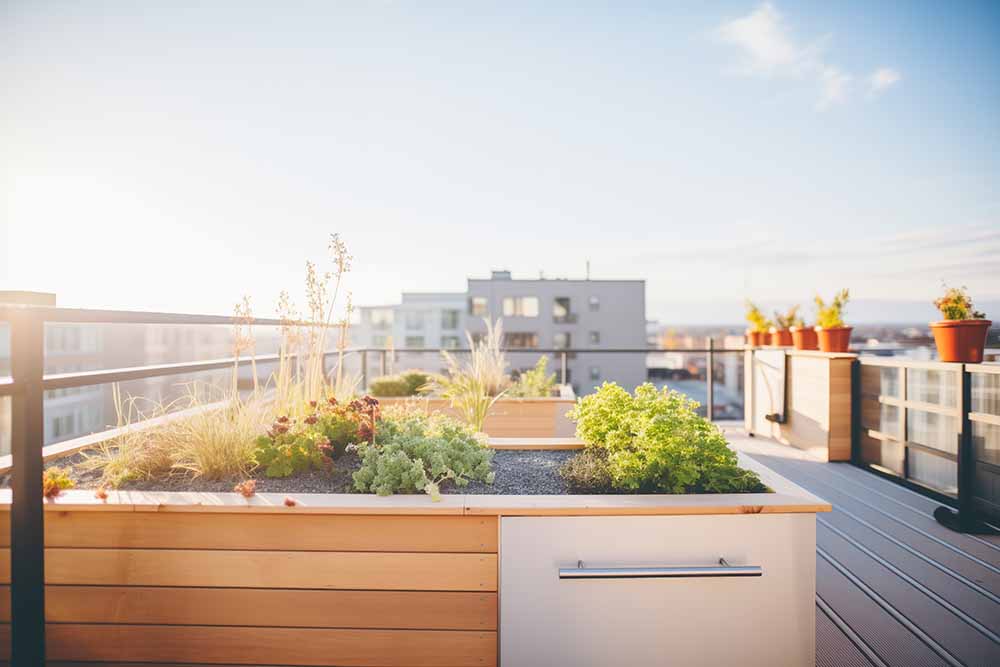
We are all trying to do what we can to live more sustainably in ways big and small. If you live in an apartment or a condo, however, you might feel like you have limited control over your footprint. While you may not be able to install a solar array or use a backyard composter, there are still plenty of ways to live a more sustainable life in a condo or an apartment, from buying secondhand clothes and furniture to changing how you wash your dishes. Here are a few ideas to get you started.
Small spaces = small footprints Reduce, reuse, recycle Conserving energy Conserving water Cutting back on food waste
Small spaces = small footprints
The good news is that you’re already ahead of the game. Living in an apartment or a condo is inherently more efficient than living in a detached home in a wide range of ways. For one, smaller square footage requires less energy to heat and cool. For another, sharing walls with other units means less heat loss in winter. If you live downtown you’ll also be able to walk and take public transit instead of relying on a car, and if you live on an upper floor, you can use the prevailing breeze to lower your dependence on air conditioning in the summer.
Reduce, reuse, recycle
The order of the three Rs of sustainability isn’t arbitrary. Reducing your consumption of everything from clothes to packaging to energy is the single most important thing you can do to live more sustainably. Thrift stores and social media groups dedicated to swapping used clothing and household goods are great alternatives to buying new stuff. When you do buy something new, try to choose products that will last for decades rather than a few years, and avoid disposable and single-use items at all costs. Buying in bulk can help to cut down on the amount of plastic packaging you bring home, as can bringing your own mug or reusable container when you’re getting food or drinks on the go.
Reusing is all about making the most of the stuff you’ve got, including learning how to mend torn clothes and upholstery. Of course, not everything can be fixed or reused, and recycling things at the end of their life is another important part of your overall sustainability strategy, albeit a much less important part than the first two.
Conserving energy
You may not have a say in how energy-efficient your appliances are, but you do have control over how you use them. For example, using a portable fan or a ceiling fan instead of cranking the air conditioning. Washing clothes is another big source of energy waste, and washing less frequently, doing full loads instead of half-full ones, washing with cold water instead of hot and hanging clothes on a drying rack instead of putting them in the dryer can all add up to big savings. You can also make the switch to LED bulbs.
Conserving water
Bathing and showering are the biggest water wasters in the home, and installing a low-flow showerhead will greatly reduce the amount of water going down the drain. When it comes to washing dishes, you can cut down your water (and energy) usage by filling the sink with hot soapy water and washing your dishes all at once, rather than washing them individually under a running tap. Speaking of the tap, if it’s dripping (or the toilet’s running) do what you can to get it fixed as soon as possible.
Cutting back on food waste
A huge amount of energy goes into growing, processing, transporting and refrigerating food, and every time you throw away a mouldy container of leftovers or a wilted head of lettuce, you are wasting all of the energy that’s gone into it. Meal planning, becoming more creative at cooking with leftovers and diligently managing your fridge inventory will all help reduce food waste. Composting is also a good way to cut back on the energy used in disposing of organic waste. If your building doesn’t compost you can try vermicomposting (a system that relies on worms to break down organic matter) on your balcony, or bring your discarded organics to a community composting program in your area.
Jeremy Freed is a freelance writer and editor based in Toronto. His writing about fashion, travel, food and design appears in Sharp, Harry and re:Porter magazines, among many others.